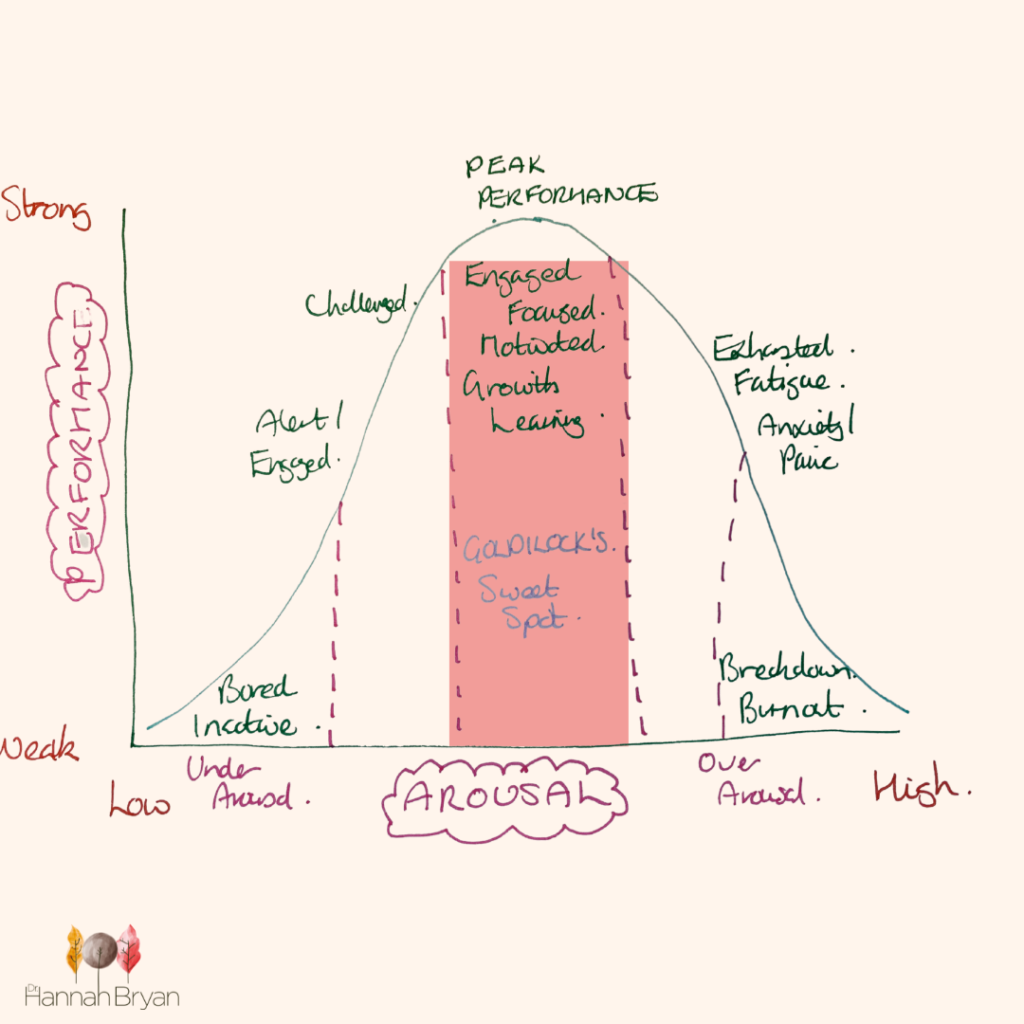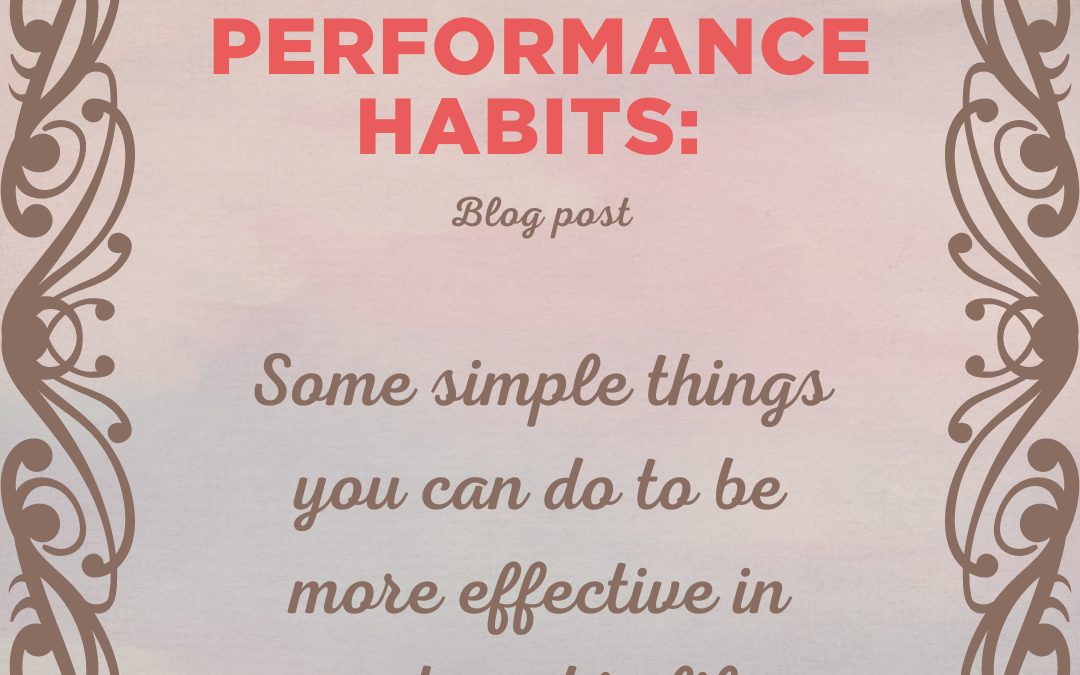Does working harder help?
Working too hard is one of the biggest mistakes we can make in our quest to be more effective, productive and happy with our working day. Working long hours, weekends or constantly doing “important tasks” will rarely make us more effective. Just the opposite, in fact. I know it doesn’t logically make much sence. Often people have have grown up thinking that working for longer hours and really hard and putting in a huge amount of effort is the things that success is made of. But I question that understanding. Read on if you want to find out more about high performance habits.
Ironically when we are too busy, our brains can become too full. It can become harder to focus on planning and organising. And when time isn’t prioritised to do this, productivity is decreased and stress levels increase. This doesn’t sound like a good place to be.
An introduction to the performance curve.
When we look at this bell shaped curve of performance we can see that our sweet spot for performance is in the middle. It’s where we are challenged and pushed but not too much and this is where we perform at our best. This is where we are more likely to achieve our high performance. But we need to develop some high performance habits.

If pushed to work too much and for too long we reach that tipping point where we become over worked, stressed and subsequently slower at the work we are trying to achieve. We are functioning outside of the middle of the curve and therefore our functioning is significantly slowed down.
It’s like a vicious circle here, we often feel that working more will help us to feel less stressed, more in control. But it doesn’t. Working more makes us more tired, stressed, run down. This can quickly become a road to burnout. Our work becomes lower in quality, and in quantity. We can feel like we are chasing our tails and never catching up. The problem isn’t really the time that we are working but the quality of the work that we are producing in the time that is available for us.
Whilst it may sound contradictory, busyness can also be a sign of low productivity. Busy people are generally less productive than their more modest counterparts. Passionate workaholics also tend to be less happy and less healthy in the long term, which could ultimately lead to burnout and worse productivity.
Researchers from Stanford University found that people who work more than 40 hours per week are less happy and productive than those who work fewer hours. The study was conducted by analyzing data from more than 250 different surveys covering over 100 countries and regions. That’s a lot of data!
So developing this understanding can help us recognise those unhealthy patterns in our lifes.
What can you do differently?
Instead, we need to think about what you can do to slow things down. How can you recharge your batteries. How can you keep youself in the sweet performance spot smack in the middle of the bell shaped curve? These are high performance habits.
Some ideas could be
Scheduling a lunch break.
Having 10 minutes “me time” in the day when you do something for yourself.
Having bookends to your day – ie. starting with meditation or journalling and ending with a gratitude practice
Take a break in the day.
Have a pause in your day, go and fill up your water bottle and do some deep breathing whilst you are there.
If you are in a shared office maybe volunteer to make the drinks and that will give you a change of scenery.
All these subtle little changes can help you slow down and subsequently be more efficient but overworking is not going to help you achieve your goals faster. There are many practical things that you can also do, you can read my blog post about time blocking here.
Are you interested in learning more about how you can enhance your performance and work at your best? I’ve developed a 19 minute exercise that will help you work on your mindset to be able to achieve your high performance. Click here to download your free PDF now and develop your high performance habits.

Hi I’m Dr Hannah Bryan
I am a Chartered Clinical Psychologist and a Europe Accredited EMDR Facilitator and Consultant.
I have over 20 years experience in both the NHS and private practice.
Like everyone, I have had hard times in my life and I have got many blocking beliefs that at times hold me back from me realising my potential and being my best.
EMDR and coaching have helped me work things through and be in a position now where I have a thriving and inspiring psychology practice. It’s always a journey and I’m always working on my blocks, my mental health and my well being.
As well as coaching, I also provide psychological therapy and support other therapists training in EMDR, I am a Facilitator on training courses and offer specific supervision packages and training to support this.


Recent Comments